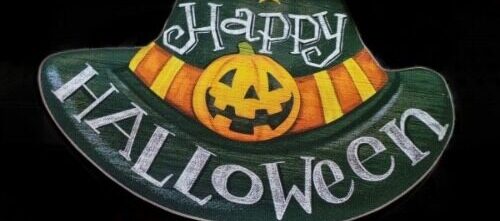By Katie Reed | October 27, 2022 | Blog Language Facts Word Geek

in honour of Halloween, we have some supernatural linguistics, highlighting ordinary English words with ghostly origins.
Aghast
Literally frightened by a ghost, from the word ghast, a version of the Middle English word gæsten, meaning to terrify.
Bugaboo
An imagined problem or bugbear with two possible ghoulish origins: an old Celtic word bucca-boo meaning a devil or spectre, or from Bugibu, a monstrous demon from a Medieval French poem, Aliscans, written around the 1100s.
Mindboggling
The boggle of mindboggling comes from the Middle English word bugge, an invisible ghost or monster. The bugges or bogles are unseen by human eyes, but often seen by animals. For example, a horse that rears up for no apparent reason may be said to have seen a .
Mascot
We think of a mascot as a fun character representing a sports team, but the word originally meant a talisman or charm used to protect someone from harm. It comes from masca, an old Provençal French word for a witch or sorceress.
Nickel
Taking its name from the Kupfernickel, or copper-demon in German folklore, this mischievous creature was believed to trick miners into thinking they had discovered valuable copper instead of the less valuable nickel. For this reason, miners learnt to treat it with respect to prevent cave-ins or other underground disasters. Of course, we now know of nickel as an element in its own right but for miners expecting copper it was disappointing.
Get insights, information and offers from The Language Factory.